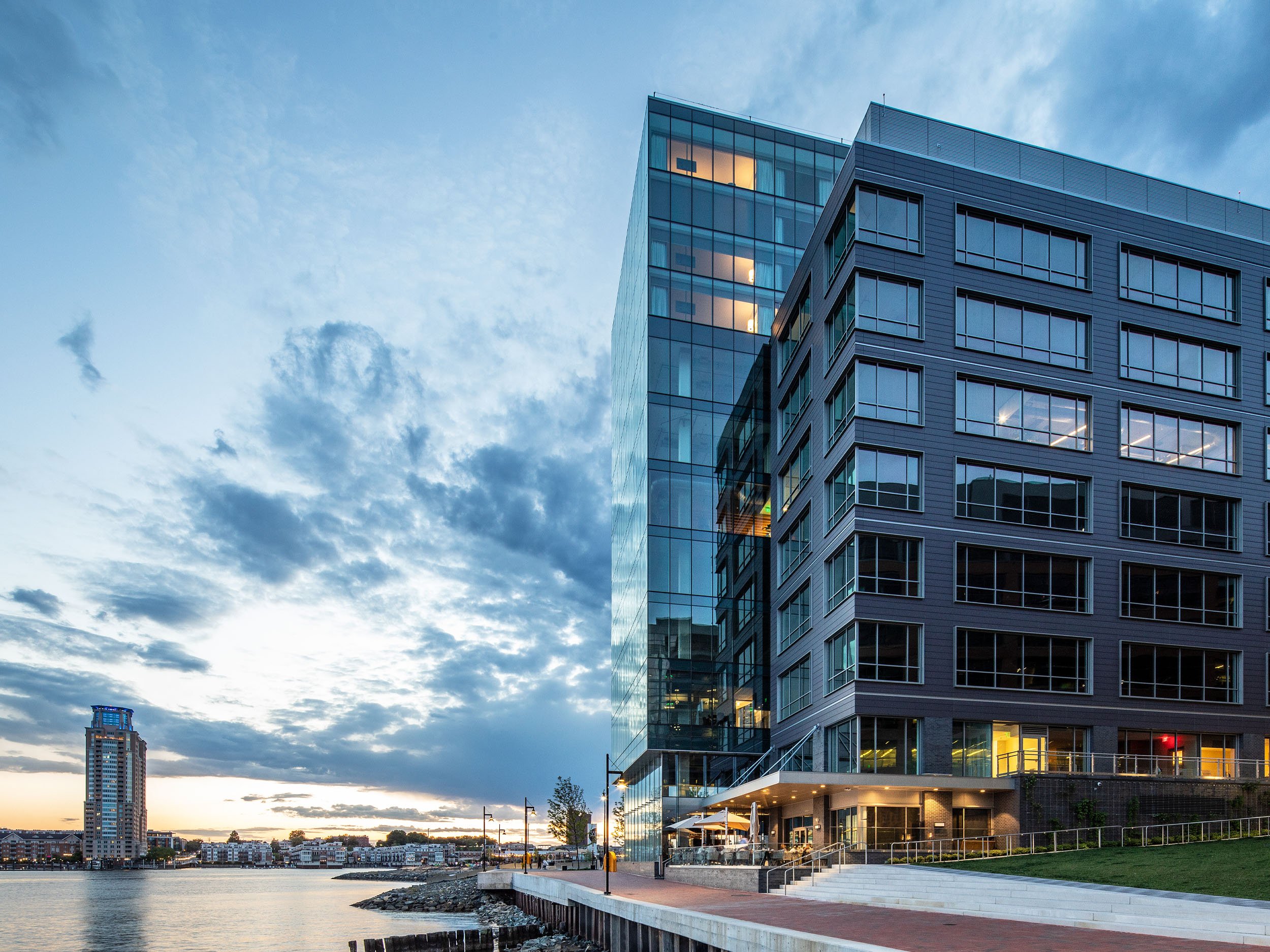
Wills Wharf
A Commitment to Sustainability
Wills Wharf at Harbor Point has fully embodied the principles of sustainability, from the initial design phase, during construction, and with ongoing operations.
Wills Wharf has achieved a LEED Gold certification. The LEED (Leadership in Energy and Environmental Design) program was developed by the U.S Green Building Council to provide a framework for healthy, highly efficient, and cost-saving green buildings. Wills Wharf also complies with the International Green Construction Code (IGCC) which was adopted by Baltimore City in 2015.
Sustainable Features
Daylight and Views
Large windows covering the building’s facades create a connection between indoor and outdoor spaces through the abundance of daylight.
Green Roof
The green roof helps regulate the building’s temperature, reduces building utilities and stormwater runoff, and captures noise pollution.
Water Use
By increasing the water efficiency within Wills Wharf, the building effectively reduces the burden on the municipal water supply and wastewater systems.
Waste Removal
The waste removal program effectively disposes of various types of waste including recycling, cardboard, compost, and regular trash.
Low Emitting Materials
Throughout the design, construction, and ongoing management of Wills Wharf, steps have been taken to utilize low emitting building materials throughout the building’s interior spaces.
Transportation Access
Taking advantage of its central location, Wills Wharf capitalizes on multiple alternative transportation methods and includes resources to encourage their use, reducing pollution and land development impacts caused by automobile use.
